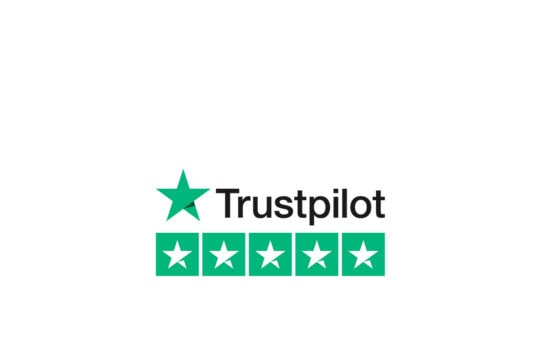Gonorrhoea Testing
We offer rapid turnaround testing for gonorrhoea, from a urine sample or swab, with results available in as little as an hour.
Gonorrhoea (sometimes referred to as the clap or the drip) is the second most common bacterial STI in the UK after chlamydia. It is mostly found in young adults under the age of 25 years and a large percentage of those infected will not experience any symptoms. Symptoms usually develop 2-weeks after being infected but can appear many months later.
Similar to other bacterial STIs, it is easily diagnosed and treatable and therefore it is important to get regularly tested. Antibiotic resistance is a serious problem with gonorrhoea infections, so it is important for this to be done correctly. If left untreated, it can lead to more serious health problems in the future such as infertility and chronic pain.
All our sexual health services are discreet and completely confidential.
Our friendly and experienced doctors and nurses are on hand to discuss any questions or concerns you might have and offer appropriate testing and treatment.
How is my sample taken?
A urine sample or a swab is needed for the test.
If you have no symptoms, the test will be run on a urine sample. If you do have symptoms, a swab of the infected area may also be needed.
Our tests are run using PCR, in our own lab, with results usually available very rapidly. If the test is positive we will normally also arrange for the sample to be cultured to confirm that the antibiotic treatment is appropriate. Culture results typically take around three days.
If we’re able to deliver an immediate diagnosis then medication will be provided during the same appointment.
When should I do my test after possibly being exposed to gonorrhoea?
Within a few days of suspected infection, especially if you have symptoms.
Symptoms can appear within 2-5 days of contact with an infected partner.
If you are asymptomatic, the results may not be 100% conclusive as the incubation period for gonorrhoea can be up to 30 days. Our doctors or nurses may advise you to come back for retesting at a later date, for additional certainty and peace of mind.
How will I receive my result?
During your appointment we will ask you how you would like your results delivered.
We can either email the results, text them to you or call you. The choice is yours. Once your results are ready we will contact you in a discreet manner and all information is kept confidential.
What is gonorrhoea?
Gonorrhoea is an infection with Neisseria gonorrhoeae bacteria
Gonorrhoea is a bacterial infection with bacteria Neisseria gonorrhoeae, sometimes also referred to as the gonococcus, which tends to target warm, moist areas of the body (urethra, vagina, anus, eyes, throat).
The bacteria that cause gonorrhoea are usually found in discharge from the penis and in vaginal secretions, so it is therefore most commonly spread via unprotected sex (vaginal, anal and oral) and through sharing sex toys. Gonorrhoea can also be passed from mother to baby during pregnancy.
What are the symptoms of gonorrhoea?
Symptoms can appear 2 days to 2 weeks after exposure.
Symptoms include thick green/yellow discharge from the penis or vagina, pain when urinating, bleeding between periods (for women) and painful/swollen testicles (in men). Importantly, there may be no symptoms. One in ten infected men and almost one in two infected women don’t present any symptoms at all, which is why testing is essential.
How does gonorrhoea affect the body?
In addition to the symptoms listed above, gonorrhoea can spread to the joints and other areas of the body via the bloodstream.
This can result in a fever, rash, skin sores, joint pain, swelling and stiffness.
Without treatment, in about 20 per cent of women, gonorrhoea can spread to the reproductive organs and cause pelvic inflammatory disease (PID). PID can lead to long-term pelvic pain, ectopic pregnancy and infertility.
FAQs
If you think you have been exposed to gonorrhoea you should book a sexual health appointment. If you aren’t displaying symptoms, book a sexual health check up with a nurse.
If you do have symptoms, you will need to book a doctor’s appointment.
It is also important that you abstain from sexual contact with anybody else until you have been tested and treated.
Yes. Gonorrhoea is typically treated with an antibiotic injection followed by an antibiotic tablet.
The only way to fully ensure you don’t catch gonorrhoea is by abstaining from sexual contact completely. If you are sexually active, you should always use a condom every time you engage in sexual activity (vagina, anal and oral sex), get tested regularly for gonorrhoea, chose less risky sexual behaviours and limit your number of sexual partners.
Absolutely. Getting tested for gonorrhoea is recommended during pregnancy because it can be transmitted from mother to baby during pregnancy. It is easily treated with antibiotics. If left untreated, gonorrhoea can cause permanent blindness in newborn babies.
Yes. It’s completely fine and normal to get tested for gonorrhoea at any point during your menstrual cycle and menstruation does not affect the results in any way.
Symptoms of UTIs and gonorrhoea can easily overlap, which is why it is important to book an appointment with a GP who can test for both gonorrhoea and UTI, in order to establish a proper diagnosis and provide you with the appropriate treatment.
Yes. Even if you have previously tested positive and have been successfully treated, you can catch gonorrhoea again. It is therefore important to always use a condom during sexual activity to protect yourself from becoming infected, as well as get regularly tested.
You should wait at least 7 days after been fully treated before you have sex again. You can catch gonorrhoea again, so it is important that any infected partners also wait until 7 days after they have finished treatment.
If left untreated, gonorrhoea can lead to more serious health conditions such as an increased chance of contracting HIV, infections in other parts of your body (including skin and joints), pelvic inflammatory disease in women, ectopic pregnancy, and infertility.






